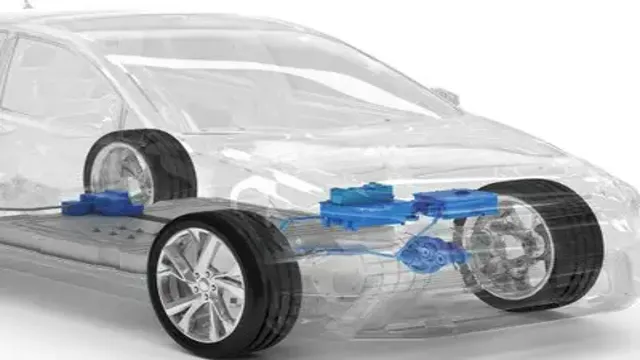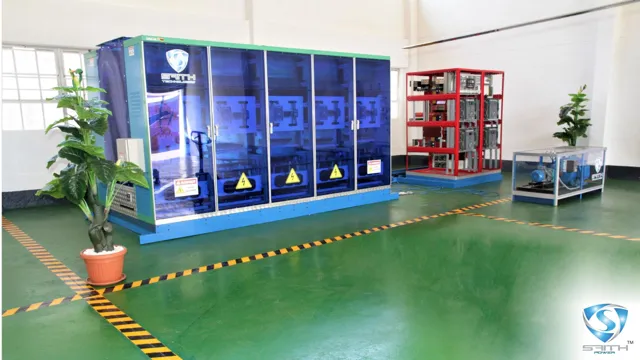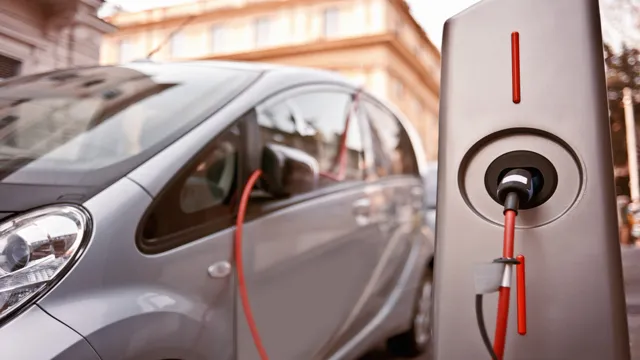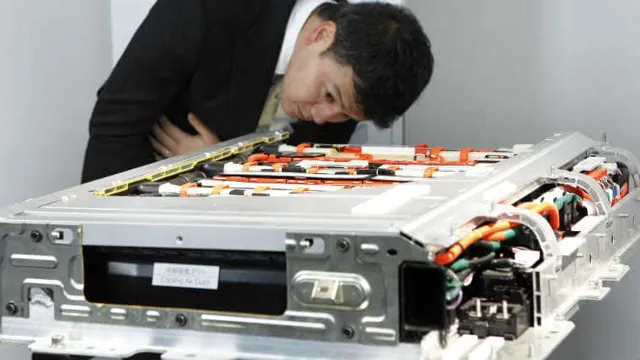Charging Ahead: Navigating the Latest Issues in Science and Technology to Gear Up for Electric Cars
Electric cars have gained immense popularity in recent years as an alternative to gasoline-powered vehicles. They offer a greener and cleaner way to commute, reducing the carbon footprint on the environment. However, science and technology issues arise with the shift toward electric cars.
Despite their promising potential, several challenges need to be addressed before fully embracing electric vehicles. For instance, limited driving range, high cost, and slow charging times are concerns that need to be resolved. This blog will delve into the science and technology challenges surrounding electric cars and explore the opportunities and benefits they can offer.
Environmental Impact
Gearing up for electric cars has been an exciting development in the automotive industry. However, this transition also brings about environmental impact concerns. While electric cars produce zero emissions while being driven, the production process still generates greenhouse gas emissions.
Additionally, the manufacturing of lithium-ion batteries for electric cars requires the extraction and processing of raw materials, which can have negative environmental effects. Furthermore, the disposal of these batteries at the end of their lifespan can potentially lead to toxic waste. Despite these challenges, there is hope for a cleaner future with electric cars.
Researchers are working on developing more sustainable and eco-friendly battery technologies, and governments are implementing policies and incentives to encourage the production and adoption of electric cars. As consumers, we can also do our part by choosing to drive electric cars and properly disposing of their batteries. By working together, we can reduce our carbon footprint and pave the way for a greener future.
Battery production pollution
Battery production is one of the most polluting industries in the world. The environmental impact of battery production is substantial, and the industry is responsible for a large percentage of the world’s pollution. The production of batteries involves the extraction of raw materials, which can lead to significant damage to ecosystems.
The production process also uses large amounts of energy, which contributes to greenhouse gas emissions. Additionally, the waste generated during battery production is often hazardous and difficult to dispose of safely. This waste can contaminate water and soil, harming wildlife and human health.
The environmental impact of battery production is a serious concern and must be addressed if we are to minimize the damage caused by this industry. By developing more sustainable production methods and reducing consumption of disposable batteries, we can work towards a cleaner, more sustainable future.

Charging infrastructure
When it comes to the environmental impact of charging infrastructure, there are a few things to consider. First and foremost, the source of the electricity being used to charge electric vehicles (EVs) has a significant impact on their overall carbon footprint. If the electricity is generated from renewable sources such as wind or solar, the environmental impact of EVs is significantly lower than that of their gasoline-powered counterparts.
However, if the electricity comes from a coal-fired power plant, the environmental benefits of EVs are diminished. Additionally, the materials used to produce charging infrastructure also have an impact. While EVs emit less CO2 during their lifetime, the production process for batteries and charging infrastructure can be energy-intensive and create emissions.
It’s essential to consider the entire lifecycle of EVs and their infrastructure to understand their overall environmental impact.
Affordability and Accessibility
As we gear up for the mass adoption of electric cars, we must address two key issues: affordability and accessibility. For many people, the high cost of electric cars is a major barrier to entry. However, advancements in technology and economies of scale are making electric vehicles more affordable than ever before.
Governments and car manufacturers are also offering incentives and subsidies to make electric cars more accessible to the average consumer. Another issue is the availability of charging stations, which can limit the range and convenience of electric cars. This is where public-private partnerships can play a key role in building a network of charging infrastructure that is accessible and reliable.
Like any new technology, electric cars have their challenges, but with the right policies and investments, we can overcome these obstacles and move towards a more sustainable future.
Cost of electric cars vs gasoline
When comparing the cost of electric cars versus gasoline, affordability and accessibility are crucial factors to consider. While electric cars may be more expensive upfront, there are plenty of incentives and tax credits available to make them a more financially viable option. Additionally, the cost of electricity is typically much lower than gasoline, resulting in long-term savings for drivers.
It’s important to note that access to charging stations may still be limited in some areas, but efforts are being made to expand infrastructure and make electric cars more accessible to all. Ultimately, while the initial cost of an electric car may be a barrier for some, the potential long-term savings and environmental benefits make it a worthwhile investment.
Low-income communities and charging access
Access to charging infrastructure is a major challenge for low-income communities that are looking to adopt electric vehicles. The cost of installing charging stations can be prohibitive, making it difficult for residents to access this critical technology. Additionally, many low-income households may not have the ability to charge their EVs at home due to a lack of resources.
This can be particularly problematic for those who rely on their vehicles for transportation, as they may not be able to afford to charge their vehicles at commercial charging stations. To make EVs more accessible to low-income communities, it’s essential to consider both affordability and accessibility. This means finding innovative ways to bring down the cost of charging infrastructure, as well as developing strategies for making charging stations more accessible to individuals who may not have the means to install their own.
Overall, a concerted effort is needed to ensure that EVs are an affordable and accessible option for all, regardless of income level.
Battery Technology
Gearing up for electric cars requires addressing the issue of battery technology. Electric cars are becoming increasingly popular, and have the potential to greatly reduce our dependence on fossil fuels. However, the technology behind electric car batteries is still evolving, and there are a number of challenges that must be overcome in order to make them a viable alternative to traditional gasoline vehicles.
One of the biggest issues is the range of electric car batteries, which can vary widely depending on a number of factors, including temperature, terrain, and driving style. This means that drivers must carefully plan their journeys to ensure that they have enough charge to reach their destinations, and charging stations must become more readily available. Furthermore, the production of electric car batteries also raises concerns about sustainability and the ethical sourcing of materials such as cobalt and lithium.
However, as battery technology evolves and new materials are developed, these issues are being addressed, and electric cars are poised to become a major part of the transportation landscape in the years to come.
Electric car range vs conventional cars
When it comes to electric cars, the battery technology is a crucial aspect that determines their range and performance. Unlike conventional cars that rely on fossil fuels, electric cars rely on rechargeable batteries to power their motors. The battery technology used in electric cars has significantly improved in recent years, with newer models offering longer ranges than their predecessors.
These modern batteries use advanced materials like lithium-ion, which are more efficient and durable than older battery technologies. This means that electric cars can now travel further on a single charge than ever before, which is a significant advantage over conventional cars. Additionally, as battery technology continues to improve, the range of electric cars is expected to increase even further, which could eventually make them the preferred option for long-distance travel.
Overall, the advancement in battery technology has been a game-changer for electric cars, making them a viable and practical alternative to conventional cars.
Improvements in battery technology
Battery technology has come a long way over the years, and improved battery technology has led to innovations in a wide range of industries. From electric cars to portable electronics, battery technology is transforming the way we live and work. The biggest improvements in battery technology have come in the form of advances in materials science, which have made it possible to produce batteries that are smaller, lighter, and more efficient than ever before.
These improvements have been driven by a variety of factors, including the need for more sustainable energy sources, increasing demands for portable electronics, and the desire to reduce the environmental impact of traditional energy sources. As a result, we are likely to see continued advances in battery technology in the years ahead, which will have a profound impact on our lives and the world around us. So, whether you are a tech enthusiast, a sustainability advocate, or just someone who wants to know what’s coming next, keep an eye out for the latest battery technologies and get ready to be amazed.
Government Initiatives
As electric cars become more commonplace, governments around the world are gearing up for the challenges they may face. Issues surrounding science and technology, such as the development of more efficient batteries and charging infrastructure, are at the forefront of efforts to ensure that electric vehicles become a viable alternative to gas-powered cars. Initiatives such as tax incentives for electric car buyers and the expansion of electric charging stations are making it easier for people to make the switch.
Governments are also working to address concerns about the environmental impact of electric cars by investing in renewable energy sources. Overall, it is clear that the move towards electric cars is not just a matter of personal preference. It is part of a larger global effort to address climate change, reduce air pollution, and move towards a more sustainable future for us all.
Incentives for electric car purchases
When it comes to purchasing electric cars, there are several government initiatives that can make the transition more financially feasible for consumers. Many local and state governments offer rebates and tax credits for electric vehicle purchases. For example, in California, car buyers can receive up to $7,000 in rebates for purchasing a new electric car, while in New York, there is a tax credit of up to $2,000 available.
The federal government also offers a tax credit of up to $7,500 for electric car purchases. In addition to financial incentives for purchasing electric cars, some cities and states are also investing in the infrastructure needed to support these vehicles. This can include building more charging stations and offering free charging in public places.
These initiatives not only help individuals make the switch to electric cars but also contribute to reducing carbon emissions and improving air quality. As more and more people opt for electric vehicles, the government’s continued investment in these initiatives will be crucial to supporting the growth of the industry.
Conclusion
As the world gears up for electric cars, we must not only focus on the technological advancements that make them possible, but also address the myriad of issues that come with this transition. From the availability and reliability of charging infrastructure to the environmental impact of manufacturing and disposing of batteries, we must consider the science and technology behind electric cars on a holistic level. But fear not, for this is the beginning of a new era in transportation, where we can all play a part in reducing our carbon footprint and driving towards a cleaner, greener future.
So buckle up and let’s power on towards a brighter, electrified tomorrow!”
FAQs
What are some of the main challenges facing the electric car industry?
The electric car industry currently faces challenges such as a lack of charging infrastructure, limited driving range, and high vehicle costs.
How is the rise of electric cars impacting the energy grid?
The increasing use of electric cars is causing strain on the energy grid, particularly during peak charging times, and may require upgrades to infrastructure to support demand.
What advancements in battery technology are making electric cars more viable?
Advancements in battery technology, such as the development of solid-state batteries and improvements in lithium-ion batteries, are making electric cars more viable by improving driving range and reducing charging time.
What impact will increased adoption of electric cars have on the environment?
Increased adoption of electric cars has the potential to significantly reduce carbon emissions and air pollution, but may also have an impact on natural resources and waste management due to the production and disposal of batteries.






